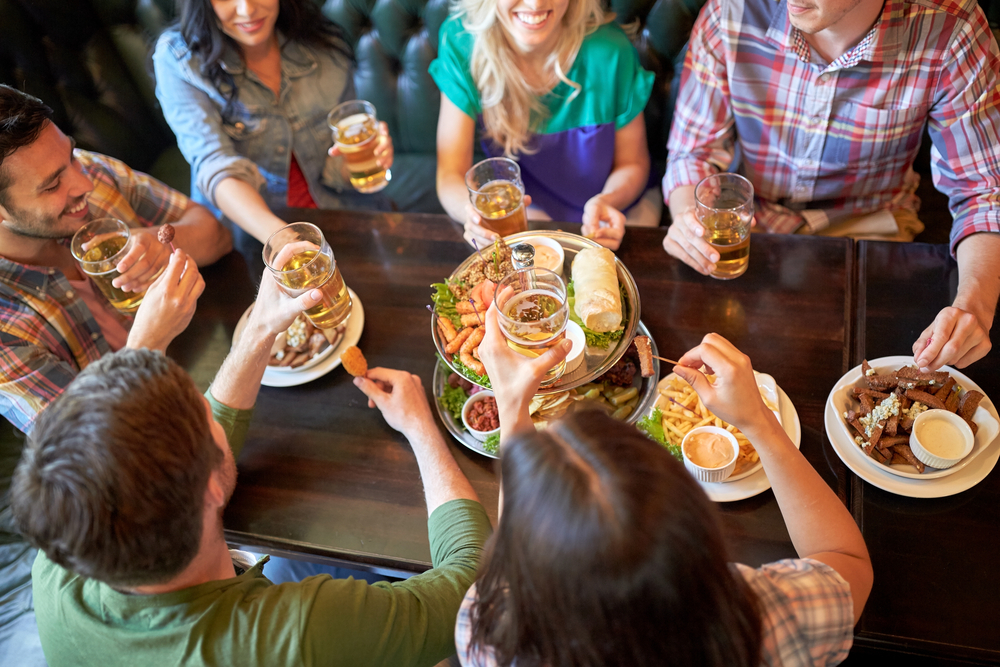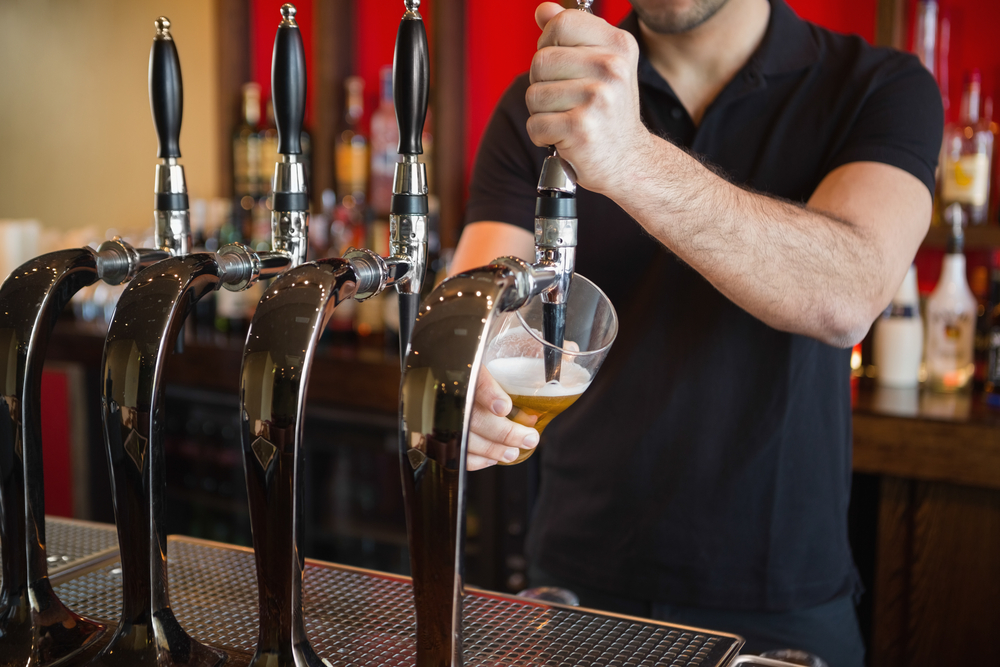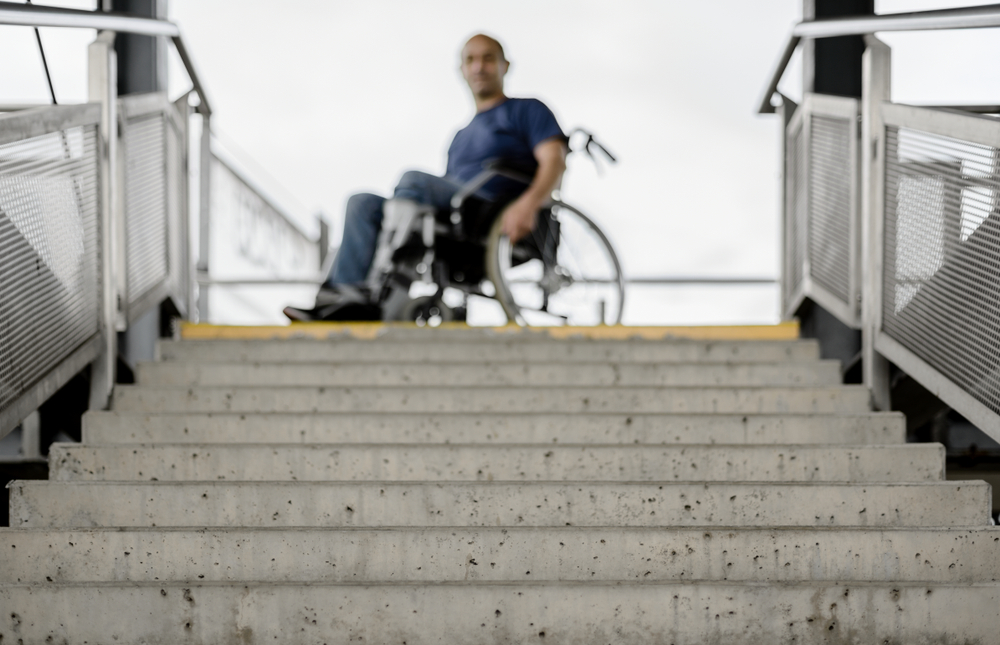


Charities are calling for "more education and understanding" from bar and nightclub staff towards islanders with disabilities and brain injuries, following reports of individuals being denied entry to licensed premises due to staff misinterpreting their disability for drunkenness.
A Facebook post by a mum explaining that a local pub had denied her disabled son entry recently gained huge traction on social media, with more than 200 reactions and almost 90 comments – many of which detailed similar experiences of friends and family members who had suffered from brain injuries being turned away by door staff in Jersey, highlighting the extent of the problem.
Express spoke to some of them...
Ella* explained that her partner, Matt*, suffered a “bang to the head” a few years ago which made his speech slower and affected his balance.
The couple were recently going for lunch at a local pub on a Sunday afternoon with some friends, but were “automatically declined” by the door staff who were convinced that Matt was “under the influence”.
Ella described the door staff as “really rude” when she attempted to explain the situation, and the group had to leave without lunch – despite having booked a table in advance.
“It’s so disheartening,” she said. "It's not like it was a Saturday night when you'd expect people to be really drunk, it was in the middle of the day on a Sunday!"
Ella tried to call the management to complain about the situation, but there was no answer and she never received a call back.
“It’s not nice,” she said. “It’s embarrassing and uncomfortable for my partner, and also ruins the lunch or evening for the people that we’re out with.”

Pictured: It "ruins the lunch or evening for the people that we’re out with.”
Ella and her partner have experienced something similar at another pub, where Matt was “asked to leave straight away”.
She explained: “People don’t want to listen or even care when you try to explain.”
Ella added the couple “don’t have the time or energy to try and explain anymore”, and have given up trying to justify themselves to door staff.
“We just leave it nowadays,” she said. “If an establishment doesn’t want our business then that’s that.”
However, Ella hopes that more education around the issue would decrease the occurrence of such incidents and prevent Matt from constantly having to explain himself when he wants to go out and socialise with friends and family.
Dave*, a recently retired carer, has experienced similar situations when going to licensed premises with people he was caring for – with two of these incidents occurring within the last 18 months.
He explained: “The first time I was out with a young man who tried to go to the bar, but the bar man turned him away.
“The young man was really upset. He had a disability card with him but did not think he should have to show it as they should have believed him when he told them he had a disability in the first place.”

Pictured: "I was out with a young man who tried to go to the bar, but the bar man turned him away."
Dave added: “The second time this happened I was with a young lady, and we went to a different pub. We were told that the pub was full, but we could sit outside.
“We waited to get served but we were told that we would have to go to the bar to get a drink. However, the doorman wouldn’t let us in due to her disability.”
Dave complained to the pub, but it was only after calling three times that his complaint was eventually dealt with.
Enable Jersey is a charity which aims to remove the barriers that limit disabled islanders and inspire changes to create a more inclusive community.
Suzanne Day, the charity’s Programme Co-ordinator, explained that disabled islanders are often “questioned and ostracised” when out with their friends.
“Even people in wheelchairs are often made to feel unwelcome in licensed premises,” she said.
Although Ms Day admitted that signifiers such as cards and medical alert bracelets can be “really valuable in explaining why someone may be stumbling or slurring their words”, people with disabilities often find it disheartening that they constantly have to prove themselves.
Mrs Day explained: “Many of the people we work with at Enable will tell us that they aren’t disabled by their condition – they’ve learnt how to deal with that – but are disabled by the environment and people around them.”

Pictured: People are often "disabled by the environment and people around them".
She added that “more education and understanding is needed, especially for people in positions of power such as till staff or door staff who have the ability to deny someone service or entry”.
Mrs Day explained that it is often as easy as “just taking a step back and observing a situation for five minutes” to help get a fuller understanding of what is going on.
“Why should someone with a disability not be able enjoy a night out with their friends?” she asked.
Mrs Day added: “We’re not trying to criticise anyone, but it’s really important to have these sorts of conversations and raise awareness.”
Karen de Gouveia, Headway Centre Manager, explained that the charity has ’brain injury awareness cards’, which are designed to help suffers to easily explain some of the key indicators of a brain injury.
She estimated that between 45 and 50 islanders are currently in possession of one of these cards – most of which are Headway members. However, the charity is happy to issue cards to non-members as long as they have a brain injury diagnosis.

Pictured: Islanders with brain injuries can get cards from Headway to help explain how their condition may present itself.
Although the cards go some way in helping brain injury sufferers to explain some of their common symptoms, Ms de Gouveia explained that “more education and awareness is always good”.
With Brain Injury Awareness Week commencing on the 15 May, the Headway team will be out in town with a stall to help raise awareness of brain injuries and how they can impact people.
Comments
Comments on this story express the views of the commentator only, not Bailiwick Publishing. We are unable to guarantee the accuracy of any of those comments.